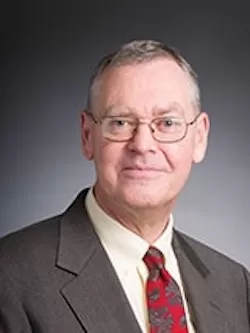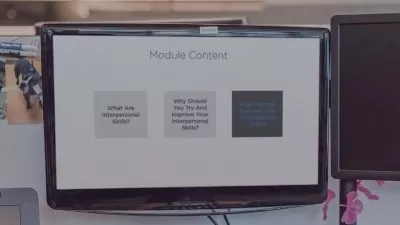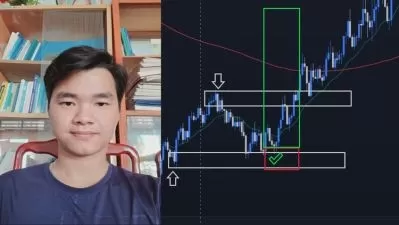The Conservative Tradition
Patrick N. Allitt
18:16:23
Description
Preserving the traditions and values of the past and applying them to the future—this is the core of the Conservative attitude. While the development of Conservatism has followed different arcs in the United States and Great Britain, this rich and fascinating political tradition has decisively impacted the evolution of both nations and their grand political institutions.
Conservatism has become a critical part of Western world thinking since its origins in the late 17th-century's Glorious Revolution, when royal power was curbed and Parliament became the central feature of the British political system. Since then, it has gone on to play an influential role in shaping the course of British—and later American—history.
In our own country, this philosophy has become one of the two dominant ideologies of our modern political tradition. A thorough understanding of Conservatism's lineage, principles, and impact on history is essential to making sense of the 21st-century political dialogue—a dialogue that consumes the television you watch, the newspapers you read, and the radio you listen to.
No matter where you place yourself on the ideological spectrum, the 36 lectures of Professor Patrick Allitt's The Conservative Tradition will intrigue you, engage you, and maybe even provoke you to think about this political philosophy in an entirely new way.
Explore the Growth of Conservatism
Stability may well be the greatest shared element of both Conservatism and modern Liberalism. The United States has now been without a revolution for more than 200 years and Britain for more than 300 years—even though nearly every other industrialized nation has been forced to undergo that traumatic national ordeal, sometimes more than once.
In crafting his exploration of just why this has happened, Professor Allitt has specifically designed his lectures to be objective, neutral, and intellectually satisfying for every viewer and listener—whatever their ideological outlook.
Using an easygoing and engaging style, he shows you
- how Anglo-American Conservatism developed and evolved in both Great Britain and the United States;
- how traditional Conservatism produced evolutionary variants like Neoconservatism, Paleoconservatism, Theoconservatism, and Libertarianism; and
- the provocative ways in which Conservatism has interacted with differing political philosophies. These have involved not only challenging opposing views but just as often contributing to them, helping to produce both the rise of modern Liberalism and the emergence of the two-party system.
Learn about the People behind the Philosophy
As he traces Conservatism's development in both nations, examining the debate between Conservatives and their opponents and the internal debate between Conservatives themselves, Professor Allitt moves back and forth across the Atlantic, revealing the impact on both nations of ideas, events, and, above all, the powerful personalities who have left their marks on history.
- John Stuart Mill, the British economist and philosopher whose writings on the philosophy of utilitarianism and free markets, on the one hand, and advocacy of equal rights for women and minorities and freedom of speech and thought, on the other, have led both Conservatives and Liberals to claim him as a founding voice
- Ayn Rand, the Russian émigré novelist and philosopher whose work influenced a generation of Libertarian thinkers, including former Federal Reserve chairman Alan Greenspan, once a member of her inner circle
- Francis Schaeffer, the Christian evangelical theologian credited not only with coining the term "secular humanism" but with helping spark the rise of the Christian Right
In addition, Professor Allitt shows you the contributions made by other major theorists and practitioners, including Adam Smith, Henry Adams, Alexander Hamilton, William Pitt the Younger, Winston Churchill, Margaret Thatcher, and Ronald Reagan.
And he takes you deep inside the Conservative movement to reveal the influence of voices from other parts of the culture, such as journalists H. L. Mencken and William F. Buckley Jr. and economists Ludwig von Mises and Friedrich von Hayek.
A Neutral Examination Both Sides Can Learn From
As you listen to Professor Allitt discuss the fascinating history of Conservatism, you'll likely be surprised to discover, whether your own leanings are Conservative or Liberal, how much of your side's views came from or were influenced by the other. You'll gain a more rounded understanding of not just your point of view but of the opposing side's, as well.
By the end of this course, you'll have an enhanced appreciation of the development of a philosophy that, Professor Allitt reminds us, has been "perhaps the dominant phenomenon of recent American politics" and how it has impacted both sides of the political spectrum. Whether you consider yourself a Liberal or a Conservative—or something in between—The Conservative Tradition can make you a more effective and informed citizen, armed with a sharpened understanding of the ways in which this philosophy has influenced events around the world.
More details
User Reviews
Rating
Patrick N. Allitt
Instructor's CoursesDr. Patrick N. Allitt is Cahoon Family Professor of American History at Emory University, where he has taught since 1988. The holder of a doctorate in history from the University of California, Berkeley, Professor Allitt-an Oxford University graduate-has also taught American religious history at Harvard Divinity School, where he was a Henry Luce Postdoctoral Fellow. He was the Director of Emory College's Center for Teaching and Curriculum from 2004 to 2009, where he looked for ways to improve teaching. In this critical administrative position, he led workshops on a wide variety of teaching-related problems, visited dozens of other professors' classes, and provided one-on-one consultation to teachers to help them overcome particular pedagogical problems. Professor Allitt was honored with Emory's Excellence in Teaching Award and in 2000 was appointed to the N.E.H./Arthur Blank Professorship of Teaching in the Humanities. A widely published and award-winning author, Professor Allitt has written several books, including The Conservatives: Ideas and Personalities throughout American History; Catholic Intellectuals and Conservative Politics in America, 1950-1985; Catholic Converts: British and American Intellectuals Turn to Rome; and Religion in America since 1945: A History. He is also author of I'm the Teacher, You're the Student: A Semester in the University Classroom, a memoir about one semester in his life as a university professor. In addition, he is the editor of Major Problems in American Religious History. He has written numerous articles and reviews for academic and popular journals, including The New York Times Book Review.

The Great Courses
View courses The Great Courses- language english
- Training sessions 37
- duration 18:16:23
- English subtitles has
- Release Date 2023/06/07





















